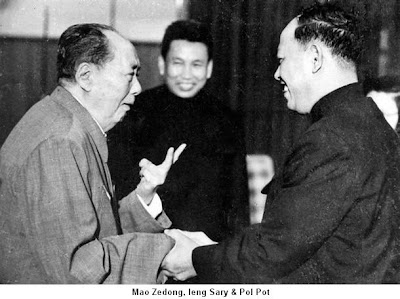
A villager walks past houses damaged by Typhoon Ketsana in Cambodia's Kampong Thom province 168km (104 miles) north of the capital, Phnom Penh in this photo taken September 30, 2009. REUTERS/Chor Sokunthea
22 Jan 2010
Written by: Thin Lei Win
BANGKOK (AlertNet) - Name a natural disaster, any disaster. Be it a typhoon, earthquake, volcanic eruption, landslide or tsunami -- all 10 countries that make up Southeast Asian bloc ASEAN have experienced them all.
The region suffered 152 natural disasters in 2008 according to ASEAN, with the biggest being Cyclone Nargis which tore through Myanmar killing nearly 140,000 people.
More recently, a 7.6-magnitude earthquake hit Indonesia in October, around the same time successive typhoons battered Philippines and flooded Vietnam, Cambodia and Laos.
The region is so vulnerable to the force of nature that many in the aid community call it 'the supermarket for disasters'.
It's this constant exposure that has spurred ASEAN, the Association of Southeast Asian Nations, to agree a legally binding pact to establish national and regional structures to deal with disasters -- the first of its kind.
"This is the Kyoto Protocol of disaster management. It's a watershed for all of us," Jerry Velasquez, senior regional coordinator for U.N. disaster agency UNISDR told AlertNet.
ASEAN hopes the ASEAN Agreement on Disaster Management and Emergency Response (AADMER) will improve the region's ability to coordinate a response and boost its resilience to future disasters by making sure that early warning and preparedness are in place.
Experts have welcomed the pact as an encouraging move in the disaster-prone region, but enforcing it will be a big challenge for the bloc which is often criticised as a toothless organisation.
CHALLENGES
Under the agreement, which came into force on Dec. 24, 2009, governments of Brunei, Cambodia, Indonesia, Laos, Malaysia, Myanmar, Philippines, Singapore, Thailand and Vietnam are required to draw up national plans on managing disasters -- ranging from early warning and preparedness to rehabilitation and scientific research.
"AADMER will help the countries look at the same picture because they will actually have to do things step-by-step," Velasquez said. "In the past, some did the strategic national plans, some didn't. It's the same for standard operating procedures. But now because of the binding nature, all (member countries) will have to do this."
Importantly, the agreement has provisions for simplifying customs and immigration procedures in times of disasters, to avoid the kind of confusion and delays aid workers experienced in the aftermath of Nargis.
However, there is no system of sanction for countries that fail to live up to their obligations which means there is no stick to shake at member states that refuse to request aid in the aftermath of a major disaster or share scientific research.
Other concerns include the lack of sufficient numbers of staff in the ASEAN secretariat to coordinate the implementation of such a wide-ranging agreement; and funding.
Although the pact has been ratified by ASEAN, it could take years for member countries to pass the necessary changes in legislation to reflect the new agreement.
For ASEAN though, the agreement itself is a major achievement.
"Disasters occur every year and they have affected millions of people in the region," Dhannan Sunoto, head of ASEAN's disaster management & humanitarian assistance division, said. "So disaster management is something ASEAN needs to have in order to reduce the number of victims."
Reuters AlertNet is not responsible for the content of external websites.


